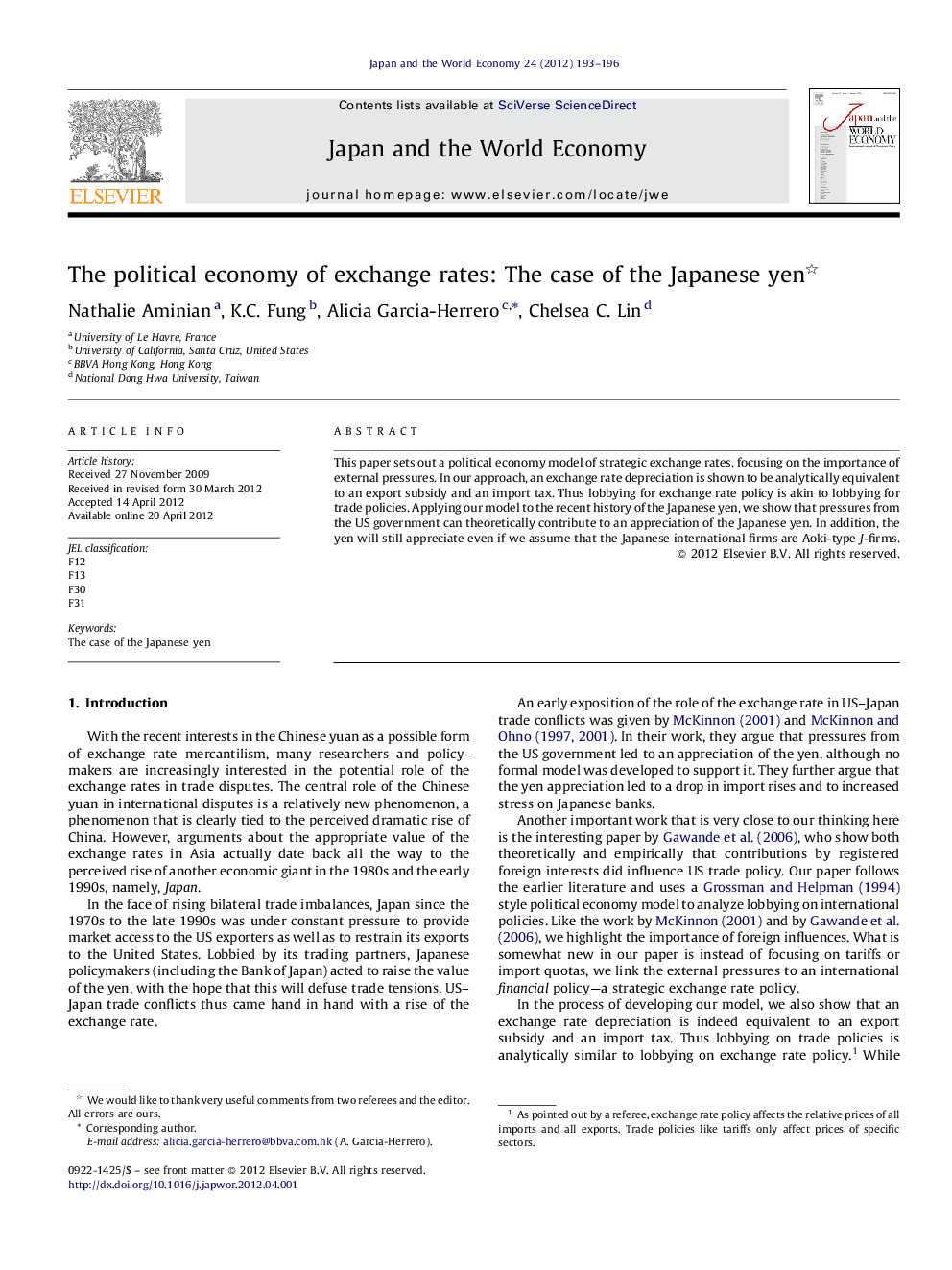| Article ID | Journal | Published Year | Pages | File Type |
|---|---|---|---|---|
| 5086146 | Japan and the World Economy | 2012 | 4 Pages |
This paper sets out a political economy model of strategic exchange rates, focusing on the importance of external pressures. In our approach, an exchange rate depreciation is shown to be analytically equivalent to an export subsidy and an import tax. Thus lobbying for exchange rate policy is akin to lobbying for trade policies. Applying our model to the recent history of the Japanese yen, we show that pressures from the US government can theoretically contribute to an appreciation of the Japanese yen. In addition, the yen will still appreciate even if we assume that the Japanese international firms are Aoki-type J-firms.
⺠We model a strategic model of exchange rate policy between Japan and the US. ⺠We obtain a theoretical result that strategic exchange rate depreciation is equivalent to an export subsidy and an import tax. ⺠We also model the impact of foreign influence. ⺠We introduce apolitical economy model of exchange rate. ⺠We show that foreign influence can theoretically lead to an exchange rate appreciation.
